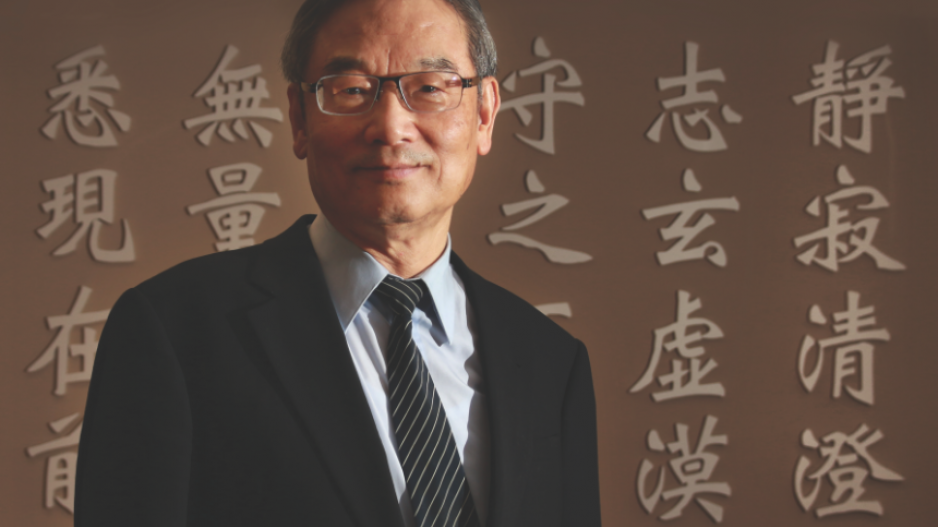On the 25th anniversary of its founding, one of the strongest proponent groups of the traditional Chinese medicine (TCM) industry in B.C. said it’s redoubling its efforts for the practice to gain wider acceptance within the current health-care system.
Gary Ho, CEO and founder of Tzu Chi Foundation Canada, said the Buddhist-philanthropy group (with original ties to the Taiwanese community) has made progress in the last year, largely by reaching out to certain demographics in need of health care outside of existing avenues, but would like provincial lawmakers to consider the benefits of TCM beyond niche markets.
“TCM has a big potential in reducing B.C.’s current medical expenses,” Ho said, adding that he would like to see Tzu Chi’s clinics in B.C. hospitals one day as part of Medical Services Plan-covered treatments.
“The benefits of TCM, which tends to be non-invasive, can be found in the shortening of the rehab period after a patient’s chemotherapy, the avoidance of certain surgeries where alternative treatments are available, and beyond. And the reduced cost means more people would have access to care.”
B.C. has a long history of supporting TCM in Canada. Acupuncture – one of TCM’s signature treatments – has been a designated health profession under the province’s Health Professions Act since 1996, and TCM itself was designated as a health profession in 2000. Both are regulated by the College of Traditional Chinese Medicine Practitioners and Acupuncturists of BC.
But many industry officials feel progress has stalled in recent years. Despite commitments to establishing “an environment” for a TCM school at a public post-secondary institution in the 2013 throne speech, the first such occurrence – an acupuncture diploma program launched at Kwantlen Polytechnic University last July – remains a two-year program limited to only one aspect of TCM (instead of the originally planned four-year program).
Some industry observers have also noted that the exclusion of TCM from the provincial Medical Services Plan makes it challenging for an increasing number of TCM doctors to find adequate market space to find patients and serve the community – a challenge also facing Tzu Chi since it owns the International College of Traditional Chinese Medicine of Vancouver, which graduates a new class of practitioners every year.
Currently, provincial statistics put the median annual salary of a TCM doctor at $19,890.
That’s why, Ho said, Tzu Chi has been focused on public awareness in the last few years. The group’s team of doctors has been holding consultation clinics at the annual TaiwanFest in downtown Vancouver every summer, reaching approximately 1,000 people annually. The philanthropy group also focuses efforts on the aforementioned targeted demographics to reach communities that may be more receptive to TCM.
One such demographic, officials say, is the First Nations community, and Tzu Chi has been holding regular clinics at such communities in Sumas, Seabird Island, Abbotsford and Nanaimo.
Ho said First Nations patients tend to have a higher acceptance level of herbal treatments, which comprise a large part of TCM practices, making the outreach to those communities a natural fit.
On May 9, when Tzu Chi established a health centre in Nanaimo for TCM clinics with the help of Simon Fraser University (SFU) and First Nations officials, the opening drew 74 patients on that day alone, demonstrating the existence of demand for such a service in the community.
“They came with long-standing, chronic conditions. In almost every case, we were able to do something to improve their conditions,” Ho said. “We are not saying this is the be-all and end-all of medical treatments, that this can cure anything. But what it does do is it gives patients another option, another choice.”
What’s more important, however, is that these clinics are co-operative efforts involving partners like SFU that will conduct research into TCM from a third-party point-of-view, which Ho said will be important for the practice to achieve widespread acceptance.
He also noted another effort – a clinic held twice a week at Vancouver Coastal Health’s Raven Song Community Health Centre – as an example of the type of moves that will propel the local TCM movement forward.
“Our hope is to have TCM treatment from Tzu Chi clinics within the B.C. health-care systems, directly found in hospitals themselves,” he said.
“This type of co-operation is crucial for us, because we are not doing this by ourselves. We are essentially working with government, academia and the communities themselves, and it involves research beyond clinical treatment from a respected third party that reflects on our authenticity in trying to help.”
@BIVnews



